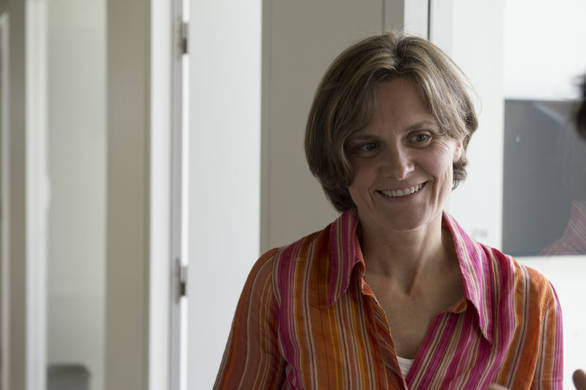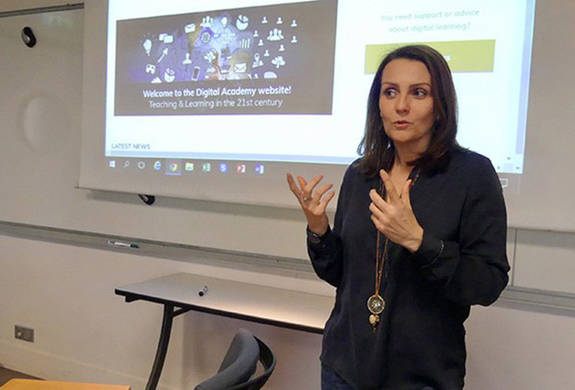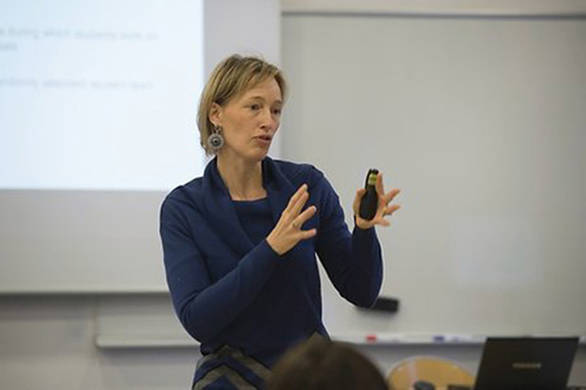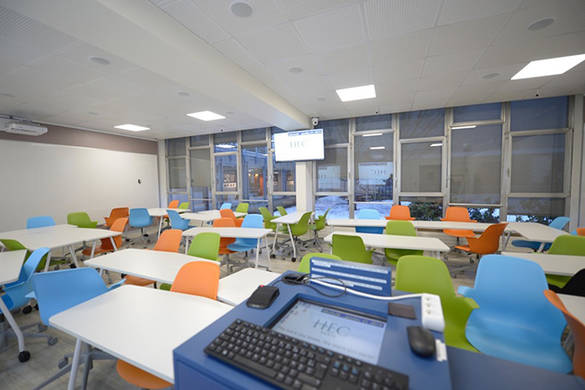HEC has always been a place that encouraged individual innovation among its faculty and teachers and where it is easy to get an initiative off the ground. In the domain of pedagogy, we need innovation more than ever, both in terms of what we are teaching and how we are doing it. Our objective with this section of Knowledge@HEC is to inspire our internal discussions on pedagogical innovation and to influence our daily practice. We also want to share our insights with the outside world in a spirit of open innovation.
Digital technology has dramatically changed learning over the past decade. Information on any topic is readily available at our fingertips on the internet. Excellent pedagogical content on a very broad range of topics can be found there for free. What then is the future of higher education in business in this digital landscape? What strategy should HEC adopt in terms of its offer and pedagogical formulas? And how should each individual teacher innovate in order to adapt to this new reality and leverage the opportunities it creates? While digital technology raises these questions and forces us to put a lot of our current practice into question, becoming more digital is not the answer to each of them.
How can we as a faculty design a combination of activities that will attain our learning objectives?
Pedagogical innovation has to take a much broader perspective. It is clear that the classroom is no longer a place to just transfer content. And only part of the learning in a program takes place in the classroom. How then can we as a faculty design a combination of activities that will attain our learning objectives? And how can we as program directors and managers create an overall experience that, during their time at HEC, fully develops the potential of our already talented students?
Because society is being transformed, we must, in addition to changing how we teach, also change what we are teaching. New degrees need to be created, new courses designed, and the content of existing courses revamped in order to make sure that our offer remains relevant for our students, their future employers, and society as a whole.
Because society is being transformed, we must, in addition to changing how we teach, also change what we are teaching.
We start this section with three articles on pedagogy, to present how we think pedagogy at HEC Paris. Kristine de Valck explains how courses can be designed in a methodical way with the objective to make them maximally effective for their learners. Caroline Meriaux focuses on the role of technology in pedagogy and on the support system that HEC puts into place in support of innovation.
In the next four articles my colleagues present examples of how we make our courses relevant for the future. Today’s students need to know how business is done today. Some theories and frameworks from the past are as useful as ever. But even more important is that we prepare our students for the future and for the many transitions that the world is facing. In the articles we zoom in on the themes of social business, sustainability and ethics.
I hope that this section of Knowledge@HEC will stimulate your individual creativity and open up discussion on how we can keep innovating together.








